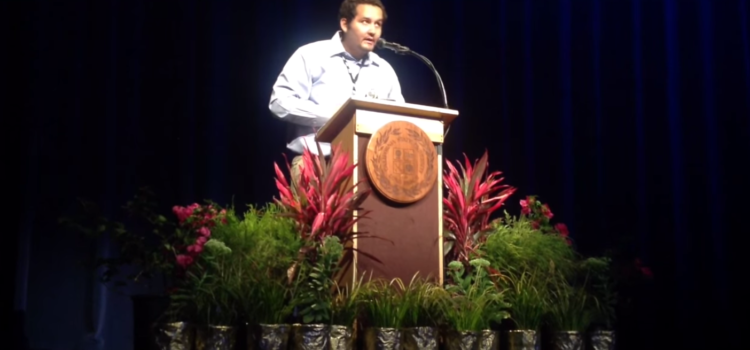
01 Aug DACA Opens Doors for Former Student Body Prez At CSULB

“The first four months it was hell,” said Salazar, a 27-year-old who is double majoring in aerospace engineering and physics. “Nobody really cared about [my] situation.”
Because he did not have a social security number the school declined to pay Salazar the $1200 monthly stipend usually given to Associated Student presidents. So to make ends meet he took a job in construction while juggling a full-time load of classes and serving as student body president.
“I saw him, he was going through a lot,” said Sandra Lopez, secretary for AB 540 and undocumented students at CSULB. AB 540 gives undocumented students access to in-state tuition and financial aid. “The most difficult part … was the backlash that was created when he was out in the news,” noted Lopez, adding Salazar became the target of racist comments.
Then in May he received DACA, or Deferred Action for Childhood Arrivals, President Obama’s program granting undocumented immigrants work permits and temporary relief from deportation. “[DACA] changed my whole perspective,” Salazar said. “It’s been something that has been very helpful.”
More than 720,000 undocumented persons have been granted DACA benefits since its launch in 2012, according to the most recent U.S. Citizenship and Immigration Services data.
As a freshman at CSULB, a campus of over 35,000 students, Salazar quickly became active in student government and was the first undocumented student to be elected president.
While he lost re-election bid for ASI president, there are still more doors opening for him.
He has not been back to Mexico since he first came to the United States at the age of 8 with his family, but he became eligible to apply for a study abroad program through DACA and is now looking forward to reconnecting with relatives.
“I’m looking forward to seeing my family, my aunt and grandma,” Salazar said. “I [didn’t see] my grandpa pass away, so I’m going to his [grave.]”
Over the summer Salazar will be joining the California Mexico Project, organized through CSULB’s Chicano and Latino Studies Department, which is seeking to support DREAMers – those who arrived in the United States as children and have lived here continuously since – on a one-month study abroad trip to Mexico.
To travel abroad, DACA beneficiaries must apply and pay for advance parole and cite humanitarian, work, or education as purposes of travel. Permission to re-enter the country is not guaranteed.
With DACA, Salazar is now also looking to apply for higher paying jobs that will allow him to better support his parents, both of whom are sick – his mother has been diagnosed with cancer and his father is undergoing dialysis.
“My family knows I have a work permit and they’re excited about it,” said Salazar, whose career goals include work in the aerospace sector. “It’s a relief off my shoulders knowing that I have some way of helping myself.”






No Comments